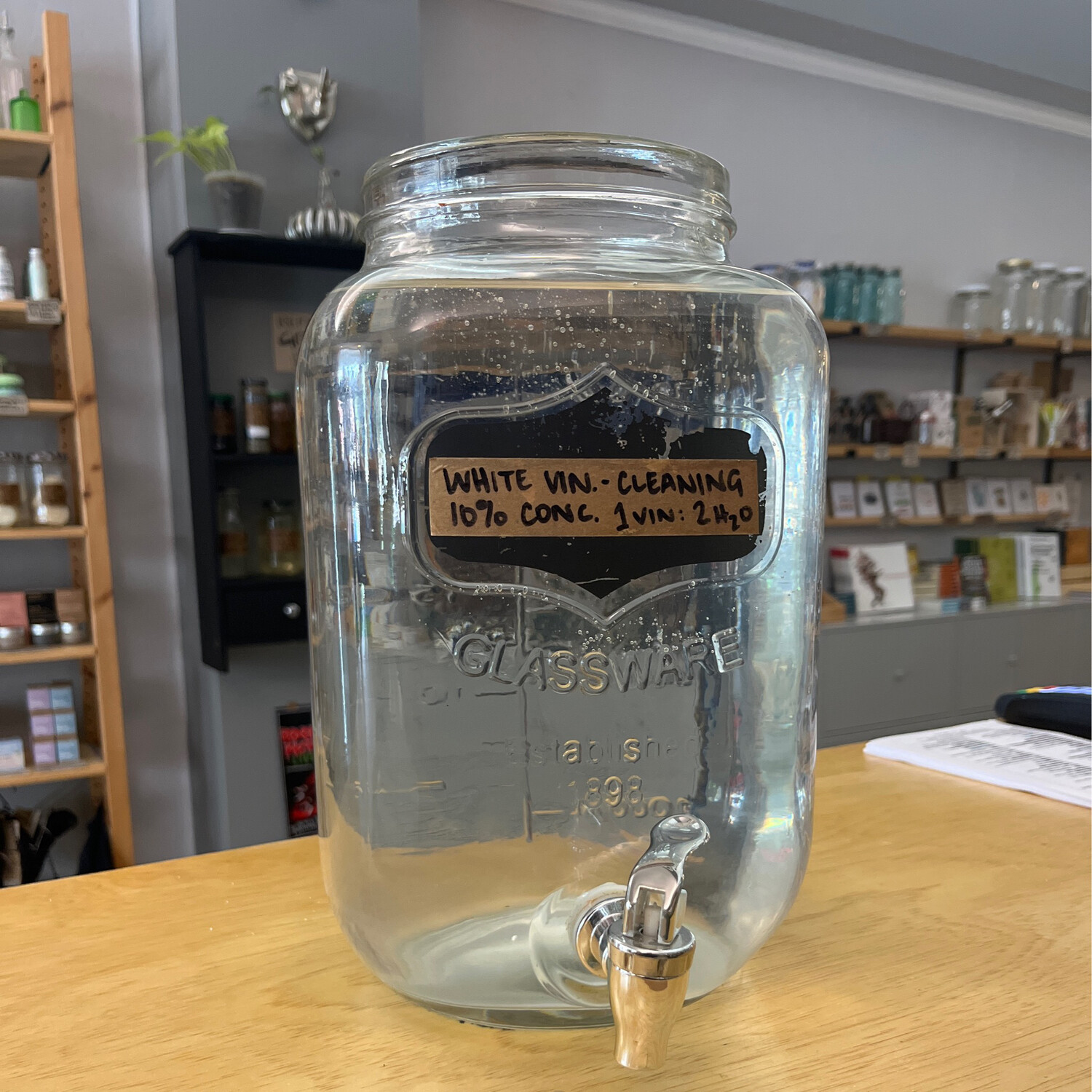10% Distilled White Vinegar, Cleaning, Home & Garden - by the ounce
10% Distilled White Vinegar - by the ounce
Blendmagic
This is a cleaning vinegar ONLY. It is NOT for human consumption. Our food-grade pantry vinegar can be found here.
10% Distilled White Vinegar is a versatile, environmentally safe alternative to store-bought cleaners and perfect for both indoor and outdoor cleaning jobs. Use at full strength or dilute (with water) to your desired application.
**Disclaimer: We do NOT ship refillery items that are sold by the ounce. They are listed for Local Pickups and Deliveries only.**
________________________________
FEATURES:
- 2X the power of standard vinegar
- No Additives
- All Natural
- Use indoors and outdoors for patios, windows, bathrooms, floors, and more!
________________________________
DIRECTIONS:
- Wear gloves and eye protection to avoid burns.
- Dilute 1 part vinegar with 2 parts water for regular cleaning, or with 1 part water for heavy duty cleaning
- Avoid metal lids or containers for long-term storage, as the undiluted vinegar will corrode the metal. Repurpose a plastic lid or dilute.
- Do not consume or use for culinary purposes.
TIPS:
- If you're unsure if vinegar is safe to use on certain surfaces, test vinegar on a small inconspicuous area first.
- Keep pets away during cleaning process, but the area is safe once dry.
________________________________
Ingredients: 10% distilled white vinegar
________________________________
Warnings: Not for human consumption. Avoid prolonged skin contact and keep out of reach of children.
________________________________
Why support Blendmagic?
Blendmagic is a family-owned business that is devoted to supporting the local economy with eco-friendly solutions made of US-based ingredients. They produce both industrial-strength and household chemicals that produce effective results while still prioritizing the environment.
Learn more here.
**Disclaimer: We do NOT ship refillery items that are sold by the ounce. They are listed for Local Pickups and Deliveries only.**
